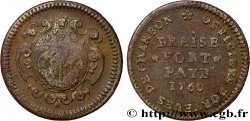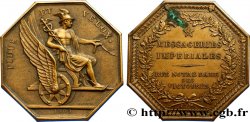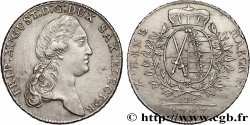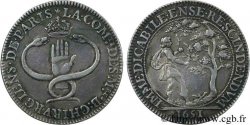65.00 €(Approx. 74.10$ | 55.25£)
Quantity
Add to your cart

Type : MARCHANDS DE VIN - TAVERNIERS
Date: n.d.
Metal : silver
Diameter : 28 mm
Orientation dies : 6 h.
Weight : 7,19 g.
Edge : cannelée
Coments on the condition:
nettoyé
Catalogue references :
Predigree :
Exemplaire provenant de la Collection MARINECHE
Obverse
Obverse legend : REGVM. MENSIS. ARISQVE. DEORVM.
Obverse description : Une coupe sur un autel ; sous l'autel, deux fleurons.
Obverse translation : Pour les tables des rois et les autels des dieux.
Reverse
Reverse legend : ÆQVATIS. IBVNT. ROSTRIS ; À L'EXERGUE EN TROIS LIGNES : LES. GARDES. MARCHANDS. DE. VINS.
Reverse description : Armes de Gardes-Marchands de vin : sept navires et au-dessus, une grappe de raisin.
Reverse translation : Ils iront sur des navires identiques.
Commentary
Cette variante de coin et particulièrement de forme de l'écu est probablement antérieure au F.5400.







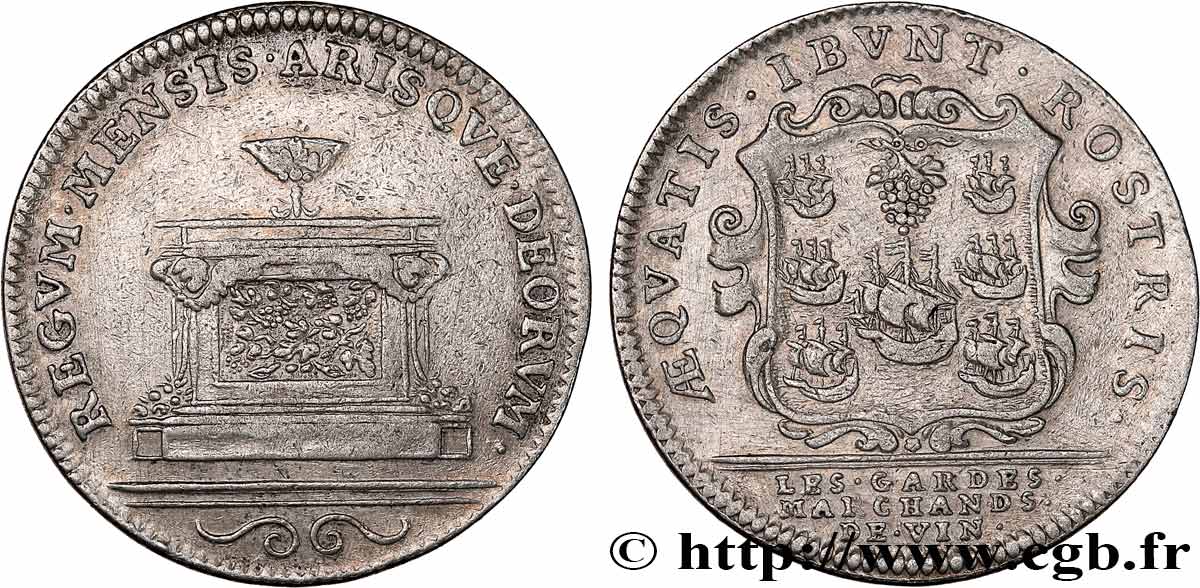
 Report a mistake
Report a mistake Print the page
Print the page Share my selection
Share my selection Ask a question
Ask a question Consign / sell
Consign / sell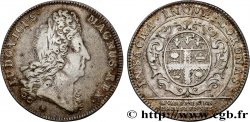
 Full data
Full data



